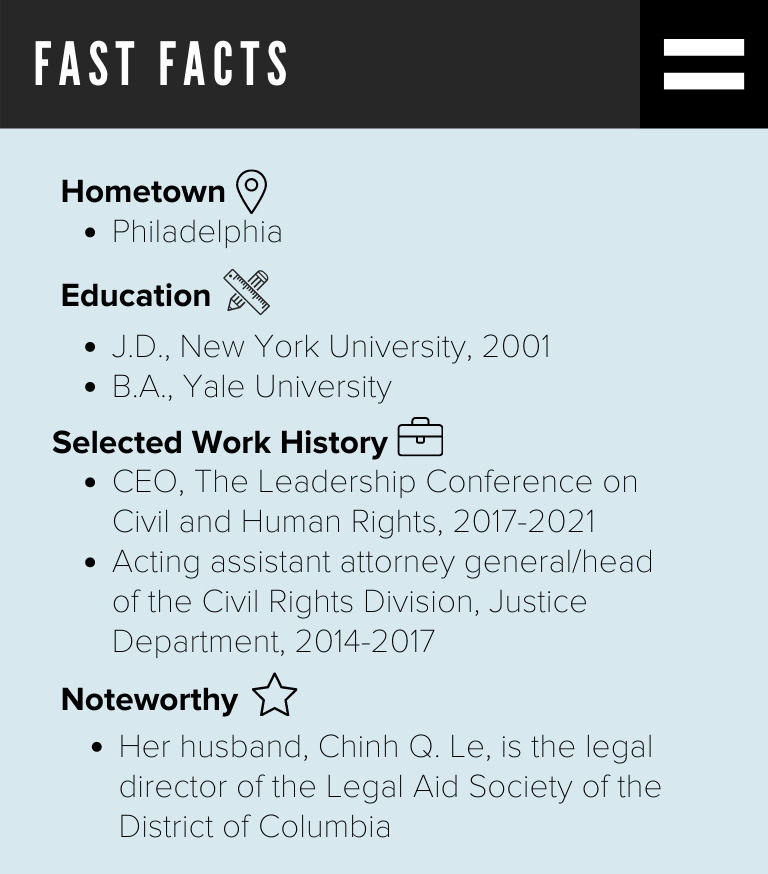Associate Attorney General
Fast Facts

Crusader for Criminal Justice Reform

LEARN MORE
Vignette, a service through National Journal Research, is an essential tool for government affairs teams that need to understand the people behind the policies.
Click here to request a demo of the Vignette database, or email njvignette@nationaljournal.com to speak to someone about your access.
Associate Attorney General Vanita Gupta’s interest in civil rights piqued when she worked on youth-violence prevention in Boston in the 1990s, observing firsthand the discrimination towards Black youth in the community.
Since then, Gupta has risen to national prominence as a civil-rights lawyer and activist. She worked at the American Civil Liberties Union, advocating for immigrants’ rights and an end to mass incarceration. After almost a decade at the ACLU, Gupta pivoted to the government sector, serving as acting assistant attorney general and head of the Civil Rights Division of the Justice Department during the Obama administration.
At the DOJ, Gupta led investigations into police departments in Ferguson, Missouri; Baltimore; and Chicago after police killings, and she worked on civil-rights priorities such as the prosecution of hate crimes, religious discrimination, and human trafficking. Gupta left the government sector in 2017 and was named CEO of the Leadership Conference on Civil and Human Rights, where she was an outspoken critic of the Trump administration’s immigration and civil-rights policies. Gupta is the first woman of color to serve as the Justice Department’s third-ranking official, overseeing issues such as antitrust law, the environment and taxes, and funding allocations to law enforcement departments.
Approach and Motivations
Excerpted from Vanita‘s Vignette profile
An effective coalition-builder able to broker relationships across partisan and ideological divides with the goal of protecting vulnerable communities
- First developed a commitment to criminal-justice reform in the 1990s working on youth-violence prevention in Boston; witnessed the vilification of Black youth in the community and became passionate about addressing the failures of the criminal-justice system and their consequences for vulnerable populations
- Proven ability to engage activists, law enforcement, corrections officials, and elected officials across the political spectrum to make progress on civil-rights issues; notably, while at the ACLU, she forged partnerships with conservative groups like the American Legislative Exchange Council and the Koch brothers on prison reform
- Views greater participation by private citizens and companies in national civil-rights action and reforms, through means such as voting, completing the census, and donating to human-rights organizations, as essential to lasting change; has led conversations with tech leaders like Facebook and Airbnb on civil-rights and content-moderation issues
Not a Vignette subscriber? You can purchase a digital book with in-depth profiles on everyone featured in this special report.
To learn more about Vignette, or see the platform in action, request a demo here.

